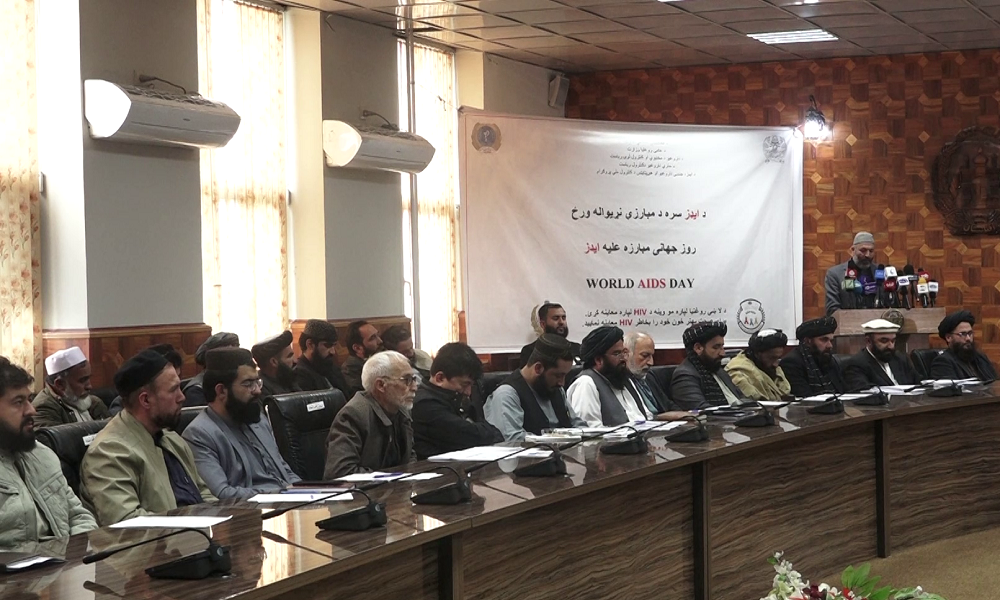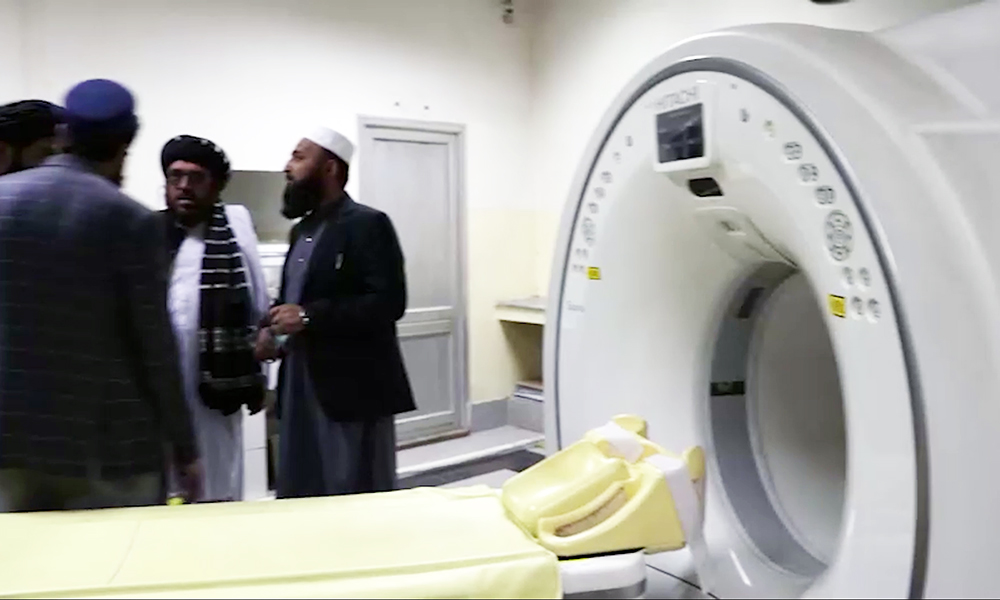Health
Spread of HIV/Aids has decreased in Afghanistan, says health ministry

The Ministry of Public Health says over the last two years, due to the efforts of the ministry and the cooperation of international institutions, the spread of many diseases, including HIV/Aids, have been eradicated or decreased.
Marking World Aids Day in Kabul on Sunday, health officials said however that the lack of facilities and diagnostic equipment is one of the ministry’s major problems.
“Unfortunately, we do not have diagnostic services in all provinces, and if they are available in some provinces, the services are not suitable for patients,” said Sharif Ahmad Ahmadzai, head of the national control program of the health ministry.
Meanwhile, the representative of the United Nations Development Program (UNDP) also attended the meeting and said based on statistics, 12,000 people in the country are HIV positive.
“In Afghanistan, this disease currently exists at a very low level. Based on the statistics of the United Nations Development Program, more than 12,000 people in Afghanistan are infected with HIV, of which 1,162 adults and children are receiving treatment, and we will cooperate with our Afghan partners,” said a UNDP representative.
Currently, 9.2 million people in the world do not have access to HIV or AIDS treatment, and according to reports, 1,700 people die of this disease every day.
Health
Azerbaijan urged to help improve capacity of Afghan health workers

Acting Minister of Public Health Qalandar Ebad, in a meeting with Azerbaijan’s ambassador, Ilham Mohammadov, called for the country’s assistance in improving the capacity of Afghanistan’s health workers.
The two sides also discussed cooperation in the health sector, capacity building of Afghan health workers, and Azerbaijan’s role in the health sector and other issues, according to a statement released by the Public Health Ministry.
Azerbaijan’s envoy said that his country seeks to cooperate with Afghanistan in a sustainable manner in the field of health.
In other news, the foundation stone for the construction of oxygen production facility was laid at the Indira Gandhi children hospital in Kabul.
Officials of the Ministry of Public Health said that the facility will be built with the financial and technical assistance of the World Health Organization, and with the capacity to produce 200 cylinders of oxygen daily to meet not only the needs of the hospital, but also other health facilities.
Health
Balkh health officials report sharp increase in number of cancer patients

Balkh Public Health Department officials say there has been a significant increase in the number of patients with cancer in the province.
“In 1401, about 2,613 OPD (out patient department) cases were registered with us. In 1402, these figures were 4,912 cases,” said Ehsanullah Kaliwal, the head of the oncology department at Balkh Regional Hospital.
Some doctors say genetic factors, environmental pollution, arbitrary use of medicines, and excessive consumption of meat were reasons for the sharp increase.
One doctor said cancer was also hereditry.
However, a large percentage of cancer patients in Balkh have stomach cancer. Many of them have appealed for the government to improve treatment facilities.
According to health officials, in the first month of this solar year (April), 423 cancer patients visited this hospital for treatment.
Health
Majority of Afghans with mental disorders are women: officials

Based on last year’s data, 52 percent of people with mental disorders in Afghanistan are women, the Ministry of Public Health said.
However, after the Islamic Emirate took over the country and with the improvement of nationwide security and the provision of better health services, mental disorders have decreased, the ministry said.
“Overall, the mental security of men and women in Afghanistan is not ensured and their mental security is disturbed. According to the figures shared with us, in 2023, 52 percent of the visitors for mental disorders were women,” said Sharaft Zaman Amarkhil, the spokesperson of the Ministry of Public Health.
“Generally speaking, we can say that compared to the past, the instances of mental illnesses have decreased,” he added.
People suffering mental disorders mostly refuse to share their problem, willingly or unwillingly.
“There are many problems at home; We are poor. I finished school, but didn’t find any job,” Ansar, a mentally ill person, said.
According to the World Health Organization (WHO), half of Afghanistan’s population suffers from mental distress.
Factors such as unemployment, poverty, domestic violence, ban on girls’ and women’s education and work, and drugs are said to be key contributors to mental distress.
-

 Latest News3 days ago
Latest News3 days agoRashid Khan named AWCC’s brand ambassador
-

 Regional4 days ago
Regional4 days agoIranian president lands in Pakistan for three-day visit to mend ties
-

 Sport4 days ago
Sport4 days agoKolkata beat Bengaluru by one run in IPL as Kohli fumes at dismissal
-

 Sport4 days ago
Sport4 days agoACL: Aino Mina 3-0 Istiqlal Kabul; Attack Energy 3-0 Khadim
-

 Climate Change4 days ago
Climate Change4 days agoRescuers race to reach those trapped by floods in China’s Guangdong
-

 Business5 days ago
Business5 days agoAfghanistan, Kazakhstan to hold joint expo in Kabul
-

 World3 days ago
World3 days agoMalaysian navy helicopters collide in mid-air, 10 killed
-

 Sport3 days ago
Sport3 days agoJaiswal ton powers Rajasthan to big IPL win
























